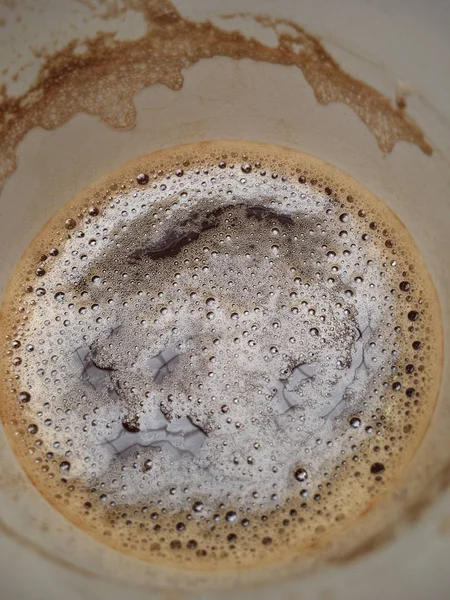Facts on Disposing Coffee Grounds Down the Sink - Find Out More
Facts on Disposing Coffee Grounds Down the Sink - Find Out More
Blog Article
They are making a number of good pointers about What are the consequences of putting coffee grounds as a whole in the content which follows.

If you're an enthusiastic coffee drinker, you may be questioning the very best method to throw away your coffee grounds. While it may seem convenient to clean them down the sink, this practice can bring about numerous issues for both your plumbing and the setting. In this short article, we'll discover whether it's safe to place coffee grounds down the sink and go over alternate disposal techniques to take into consideration.
Alternatives to Disposing of Coffee Grounds
Garbage Disposal
If you don't have a composting configuration, an additional option is to merely throw your coffee premises in the trash. Make sure to seal them in a compostable bag or container to stop smells and leakage. While this method does not use the very same environmental advantages as composting, it's a safe and hassle-free means to get rid of coffee grounds.
Composting
One environmentally friendly choice for disposing of coffee premises is to compost them. Coffee premises are rich in nitrogen, making them a superb addition to compost heap or containers. As they decay, they include nutrients to the dirt, improving its fertility and texture.
Risks of Putting Coffee Grounds Down the Sink
Plumbing Issues
Among the main interest in dealing with coffee grounds down the sink is the danger of clogging your pipelines. Coffee premises don't liquify in water and can gather in time, forming a thick sludge that can block drains pipes and bring about costly plumbing repair services.
Environmental Impact
Past the prospective damages to your plumbing, placing coffee grounds down the sink can also harm the environment. When cleaned right into the sewage system, coffee grounds can add to obstructions in sewage system lines and therapy centers. Furthermore, the high focus of organic matter in coffee premises can deplete oxygen levels in waterways, negatively impacting aquatic life.
Tips for Proper Disposal
Regular Maintenance
Despite how you pick to deal with your coffee grounds, it's essential to preserve your plumbing frequently. Arrange periodic drain cleanings to remove any accumulation and guarantee that your pipes remain clear and free-flowing.
Make Use Of a Sink Strainer
To prevent coffee grounds from entering your sink's drain to begin with, take into consideration utilizing a sink filter. These cost-effective tools catch solid particles, consisting of coffee premises, preventing them from causing blockages.
Final thought
While it might be alluring to clean coffee grounds down the sink for comfort, doing so can have significant consequences for your plumbing and the environment. Instead, consider composting your coffee grounds or disposing of them in the trash. By adopting responsible disposal practices, you can enjoy your coffee guilt-free while minimizing your environmental footprint.
Coffee Grounds Down The Drain: Are They OK?
Can Coffee Grounds Go Down the Sink?
You may be thinking, “But I pour them down the sink drain every day and I’ve never had a clogged drain!” You see, coffee grounds come from coffee beans, which are virtually rock hard by the time they’re ground and brewed. You certainly wouldn’t want to grind up the pit from a peach, apricot, or nectarine that is about just as hard because they wouldn’t break down like other foods, and it’s the same with coffee beans!
If you usually grind coffee beans in the garbage disposal because it seems the cleanest and convenient, we don’t fault you for that. And anyone who has ever had to clean up the trash with spilled coffee grounds after a dog got into it would understand the rationale. Unfortunately, coffee grounds do not break down in water, so instead of grinding up and washing away as normal foods do in a garbage disposal, they clump together and as time goes by, the grounds can form a clump and pack the drain until it develops a clog.
What to Do With Coffee Grounds
So, what do you do with coffee grounds if you can't put them down the drain? You could of course just throw them in the garbage, but we encourage you to give these practical uses for them a try!
Since coffee grounds contain key minerals for plant growth, you can use them to fertilize your garden. Coffee grounds not only fertilize gardens because they are mineral-rich, but they are also great at absorbing contaminants in the soil, particularly heavy metals. Coffee grounds are said to attract worms, which help gardens flourish. You can use coffee grounds as fertilizer by sprinkling them around your plants. You can compost your coffee grounds and use them at a later time. Coffee grounds are great insect repellents when you place them in bowls or sprinkle them around the areas you want to repel insects. To remove fleas from your dog or cat, simply shampoo your pet then rub coffee grounds throughout their fur. Rinse them off and dry as usual. Like baking soda, used coffee grounds can eliminate odors. You can place them in a bowl in the fridge and let them do the work! Mix coffee grounds with coconut oil for a wonderful face or body scrub, or to reduce the appearance of cellulite. https://www.wintershomeservices.com/blog/2019/august/coffee-grounds-down-the-drain-are-they-ok-/

We hope you liked our part about Can Coffee Grounds Go Down the Drain or Sink?. Thank you so much for taking a few minutes to read through our piece of content. Do you know about somebody who is involved in Should You Put Coffee Grounds Down the Sink?? Do not hesitate to promote it. We recognize the value of reading our article about Can Coffee Grounds Go Down the Drain or Sink?.
Call Today Report this page